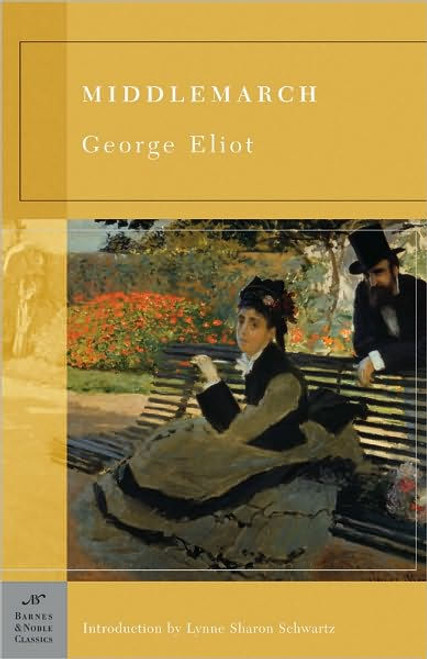George Eliot's most ambitious novel is a masterly evocation of diverse lives and changing fortunes in a provincial English community prior to the Reform Bill of 1832. Peopling its landscape are Dorothea Brooke, a young idealist whose search for intellectual fulfillment leads her into a disastrous marriage to the pedantic scholar Casaubon; the charming but tactless Dr Lydgate, whose marriage to the spendthrift beauty Rosamund and pioneering medical methods threaten to undermine his career; passionate, idealistic and penniless artist Will Ladislaw; and the religious hypocrite Bulstrode, hiding scandalous crimes from his past. As their stories interweave, George Eliot creates a richly nuanced and moving drama.
This edition uses the text of the second edition of 1874. In her introduction, Rosemary Ashton, biographer of George Eliot, discusses the themes of change in Middlemarch, and examines the novels as an imaginative embodiment of Eliot's humanist beliefs.
Editorial Reviews
"The most profound, wise and absorbing of English novels...and, above all, truthful and forgiving about human behaviour." -Hermione Lee
"No Victorian novel approaches Middlemarch in its width of reference, its intellectual power, or the imperturbable spaciousness of its narrative." -V. S. Pritchett
"One of the few English novels written for adult people." -Virginia Woolf
About the Author
George Eliot (Mary Ann Evans Cross) was born on November 22, 1819 at Arbury Farm, Warwickshire, England. She received an ordinary education and, upon leaving school at the age of sixteen, embarked on a program of independent study to further her intellectual growth. In 1841 she moved with her father to Coventry, where the influences of “skeptics and rationalists” swayed her from an intense religious devoutness to an eventual break with the church. The death of her father in 1849 left her with a small legacy and the freedom to pursue her literary inclinations. In 1851 she became the assistant editor of the Westminster Review, a position she held for three years. In 1854 came the fated meeting with George Henry Lewes, the gifted editor of The Leader, who was to become her adviser and companion for the next twenty-four years. Her first book, Scenes of a Clerical Life (1858), was followed by Adam Bede (1859), The Mill on the Floss (1860),Silas Marner (1861), and Middlemarch (1872). The death of Lewes, in 1878, left her stricken and lonely. On May 6, 1880, she married John Cross, a friend of long standing, and after a brief illness she died on December 22 of that year, in London.
Rosemary Ashton, Professor of English Literature at University College, London, is the editor of the Penguin Classics edition of Middlemarch. This edition uses the text of the second edition of 1874. In her introduction, Rosemary Ashton, biographer of George Eliot, discusses the themes of change in Middlemarch, and examines the novels as an imaginative embodiment of Eliot's humanist beliefs.



